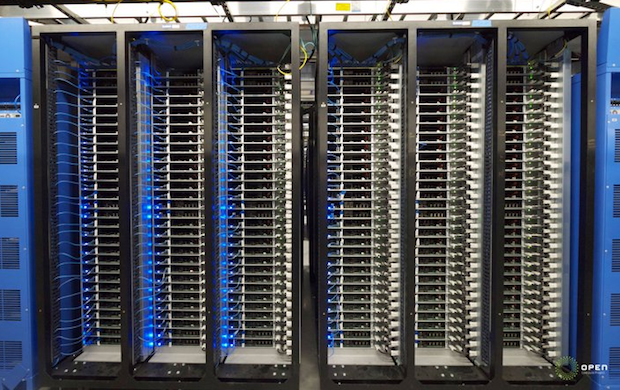 Sure, it wasn’t Facebook’s take on Groupon it announced today, but its new Open Compute Project definitely deserves a mention. The social network started off its live-streamed event this morning by explaining that no exciting new products or applications were being introduced today, while also reminding us that its data center and servers are how the site is able to create and power these features.
Sure, it wasn’t Facebook’s take on Groupon it announced today, but its new Open Compute Project definitely deserves a mention. The social network started off its live-streamed event this morning by explaining that no exciting new products or applications were being introduced today, while also reminding us that its data center and servers are how the site is able to create and power these features.
CEO Mark Zuckerberg and late VP of technical operations Johnathon Hieliger explained the difficulties social platforms have working with traditional, rented data servers. Hieliger likened it to living in a rented apartment where everything works, but you can’t paint the walls or tweak much to add your own personality. He also mentioned that while this depends on the flexibility of the individual data center, engineering social products and applications would be more cost and time efficient if something were engineered specifically to this end. And what Facebook wants, Facebook gets.
The social network opened its own data center in Prineville, Oregon last year and is busy preparing for another in North Carolina — all the while creating its own custom-made servers in the process. Today, Facebook revealed that this customized technology is far more efficient and economical than most in the industry, specifically when it comes to engineering for social platforms. In fact, its data center and servers are 38 percent more efficient and 24 percent less expensive to build than current competitors. And in the spirit of camaraderie, Facebook is opening up all of this information via the Open Compute Project.
This means that social startups will be able to, from day one, be able to begin with socially customized servers and (if necessary) data centers. Since it’s open source, the details of how Facebook pulled it off – every detail and specification – are now available for your or anyone else’s consumption.
While Facebook won’t profit from giving away its research findings for free, the buzz could build a following for the hardware designs that would spur more companies to build compliant hardware. Alternately, Facebook could lease space in data centers using its new technology to companies that don’t want to be bothered configuring it themselves.
It also makes us wonder what startups are going to jump all over this. Twitter clearly needs to get its act together before its users outgrow the site and its locked in technical difficulties oblivion, and Tumblr seems to be another site users can’t depend on. Will Facebook’s Open Computer Project be the answer for them?


